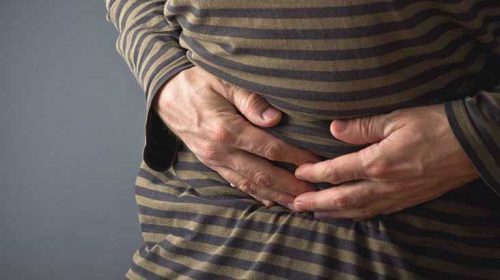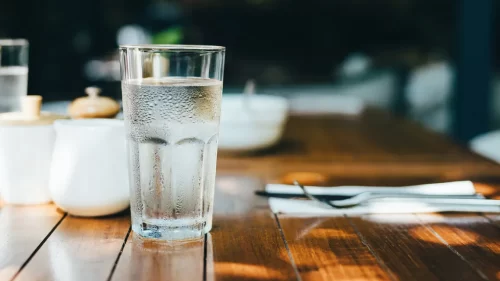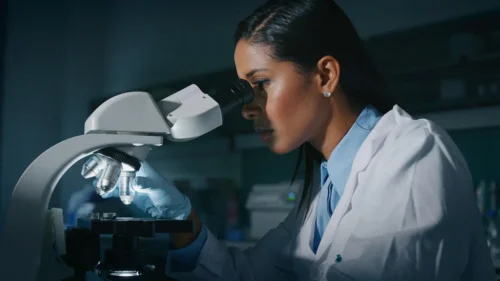The various treatment options for patients with kidney stones that are obtainable anywhere in the world can be accessed in Nigeria. If you have a kidney stone and has been looking for a solution, then you are at the right place.
Below are some basic information.
WHAT ARE KIDNEY STONES
They are small hard deposits that are found in the kidney or along the ureter( the narrow tube that transports urine from the kidney to the bladder )
They can cause pain, infection, blockage or damage to the kidney if left untreated.

HOW DO PEOPLE GET KIDNEY STONES?
There are many potential causes of kidney stones but the most common cause by far is poor fluid intake. One of the body’s strongest defenses against stone formation is dilution.
When electrolytes and compounds are below a certain threshold in concentration stone formation does not occur.
Other causes include abnormalities of the urinary tract such as those leading to poor drainage of urine. This promotes contact between compounds in the urine that can crystallize to start the process of stone formation.
Diet also plays a role in the risk of stone formation.
Diseases such as gout (excess uric acid) or sarcoidosis (these patients have high calcium levels in the urine because of excess calcium production) also predispose to stone formation.
WHAT ARE THE SYMPTOMS OF KIDNEY STONES?
You may not notice if you have small kidney stones. You’ll usually pee them out without any discomfort.
Larger kidney stones can cause several symptoms, including:
pain in the side of your tummy (abdomen)
severe pain that comes and goes
feeling sick or vomiting
THE COMPLICATIONS ASSOCIATED WITH KIDNEY STONES?
Kidney stones may be present without symptoms for a long time. Usually hen sitting in the kidney and not blocking the flow of urine there are no symptoms.
They, however, can become a focus for bacterial growth and infections that are difficult to eradicate. When they block the path of urine they can cause excruciating pain.
In some people, however, even when obstructing the flow of urine in the kidneys there is no associated pain and unfortunately, these individuals often end up with kidney damage before detection.
WHAT ARE THE TREATMENT OPTIONS FOR KIDNEY STONES?
There are multiple ways to treat kidney stones including surveillance, medical and surgical options. A urology doctor is usually able to determine if a surgery is necessary or not after administering some urology tests.
The treatment of choice depends on the symptoms, patient and stone characteristics (size, location, density, and composition) as well as patient preference.
Medical options include medications to encourage stone passage (e.g. Tamsulosin which relaxes the ureter promoting passage of the stone). Only stones meeting certain criteria qualify for this option.
There are other medications are used to prevent stone formation by lowering the concentration of calcium in the urine if you have been diagnosed with excess calcium in the urine.
Only about 5% of stones (non-calcium based) are dissolvable using medication. Also, the most common of these are uric acid stones and these should be dissolved if one can raise urine alkalinity to >6.5 with potassium citrate.
For direct intervention, options for stones less than 2 cm in size include extracorporeal shockwave lithotripsy (ESWL) where sound waves are directed to break the stones or endoscopic (no cut/incision) surgery (ureterorenoscopy and laser lithotripsy) where the stone is broken under vision using laser energy (See Video below).
HOW TO PREVENT KIDNEY STONES
One of the most important components of managing patients with kidney stones is the prevention of recurrence.
General recommendations for stone formers include: Increase fluid intake (recommend 3 liters or more per day), decreased animal protein intake, reduced salt intake, increased intake of fluids that contain citrate (lemonade or orange juice).
Patients who meet certain criteria may need to undergo further testing to determine more specific causes of their stones with a 24-hour urine test.
These patients can then have further targeted treatment based on the findings of the test.
FINDING A KIDNEY STONE SPECIALIST (OR UROLOGIST SPECIALIST).
In addition, Identifying a surgeon to perform any procedure is the most critical decision one can make in treating urological diseases not treatable by medication.
A consultation with the urologist would include a complete assessment of the patient’s disease and individualization of treatment options.
Read our article on home remedies that can lower your risk of kidney stones. HERE
Book an appointment today for an assessment by calling +2348033103165 or +2349067768799.
WATCH VIDEO


